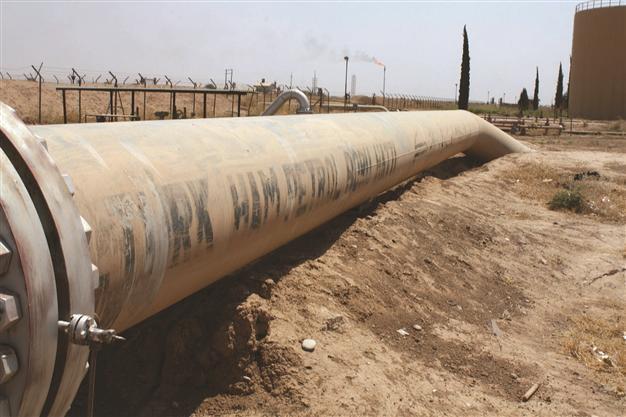Ankara collecting offers to outsource pipeline security
Burak Bekdil

Turkish pipelines have become sabotage targets, particularly at the eastern and southeastern regions. As part of efforts to reinforce protection, the country has launched a bid for procument of integrated security systems.
Turkey’s defense procurement office, the Undersecretariat for Defense Industries (SSM), has officially opened a bidding process to procure integrated security systems for all oil and natural gas pipelines in the country.
The SSM has invited “Requests for Information (RfIs)” for the bidding. The planned security systems will be for all existing pipelines, others that will be built and management facilities and units on these pipelines, according to the RfI document.
The integrated security systems will protect pipeline facilities from threats like sabotage and theft, the document states.
The bidders should respond to the RfI document no later than Sept. 3, with a dossier that should include a letter of intention, their capabilities in pipeline security, past experiences and a product catalogue.
SSM will respond to bidders from Sept. 15, and the contenders will be asked to make bids no later than Oct. 15.
Defense procurement officials said the program intends to provide protection for existing and future pipelines especially in Turkey’s southeast. The project comes at a time when oil revenues are a lifeline for the Kurdish Regional Government (KRG) in northern Iraq, whose peshmerga forces are being supported by U.S. air strikes in their battle against the radical Sunni militants of the Islamic State in Iraq and the Levant (ISIL).
A pipeline, which first began operating at the start of this year, allows the semi-autonomous Kurdish enclave to independently pump and export oil, carrying northern Iraqi Taq Taq crude to Turkey’s Mediterranean export outlet of Ceyhan.
The KRG began independently exporting its crude via Ceyhan in May, a move that has infuriated Baghdad, which claims the sole authority to manage Iraqi oil.
Baghdad has tried to block KRG’s oil sales and prevented some cargoes from discharging through legal action, but the Kurdish enclave has managed to load seven export cargoes from Ceyhan, according to Turkish Energy Minister Taner Yildiz.
So far, 7.8 million barrels of Kurdish oil have flowed through the independent pipeline, of which 6.5 million have been loaded onto tankers for export.
But Turkey also hopes it will be destined to evolve into a more robust economic and political power with gas from the Caspian Sea set to move from the Southern Caucasus to Europe through the Turkish territory.
Dreams of becoming hubPlans for the Trans-Adriatic Pipeline (TAP), and the subsequent blossoming of further pipeline plans pumping gas out of Turkmenistan, Kazakhstan, Egypt and Iraq to Europe, raise Turkey’s stature as a major energy transit country.
Such plans are bound to elevate the country’s future economic outlook.
An energy official said Turkey was the answer to Europe’s energy security concerns. “In particular Europe’s fear of being vulnerable to Russian price manipulations could prove valuable. For all that pipeline security is a major issue for us,” he said.
He said Turkey was uniquely positioned between the largest oil and gas resources in the world and the second largest oil and gas market in the world.
“Turkey has fielded pipeline offers not just from the South Caucasus, but from Cyprus, Israel, and Iraq. The TAP is, of course, just one pipeline project in a series of such proposals that will cut through Turkey en route to Europe. Others include the Arab Gas Pipeline and the Iraq-Turkey Gas Pipeline. All that inevitably makes pipeline security a key issue that requires a professional approach with the best available technology,” the official said.
